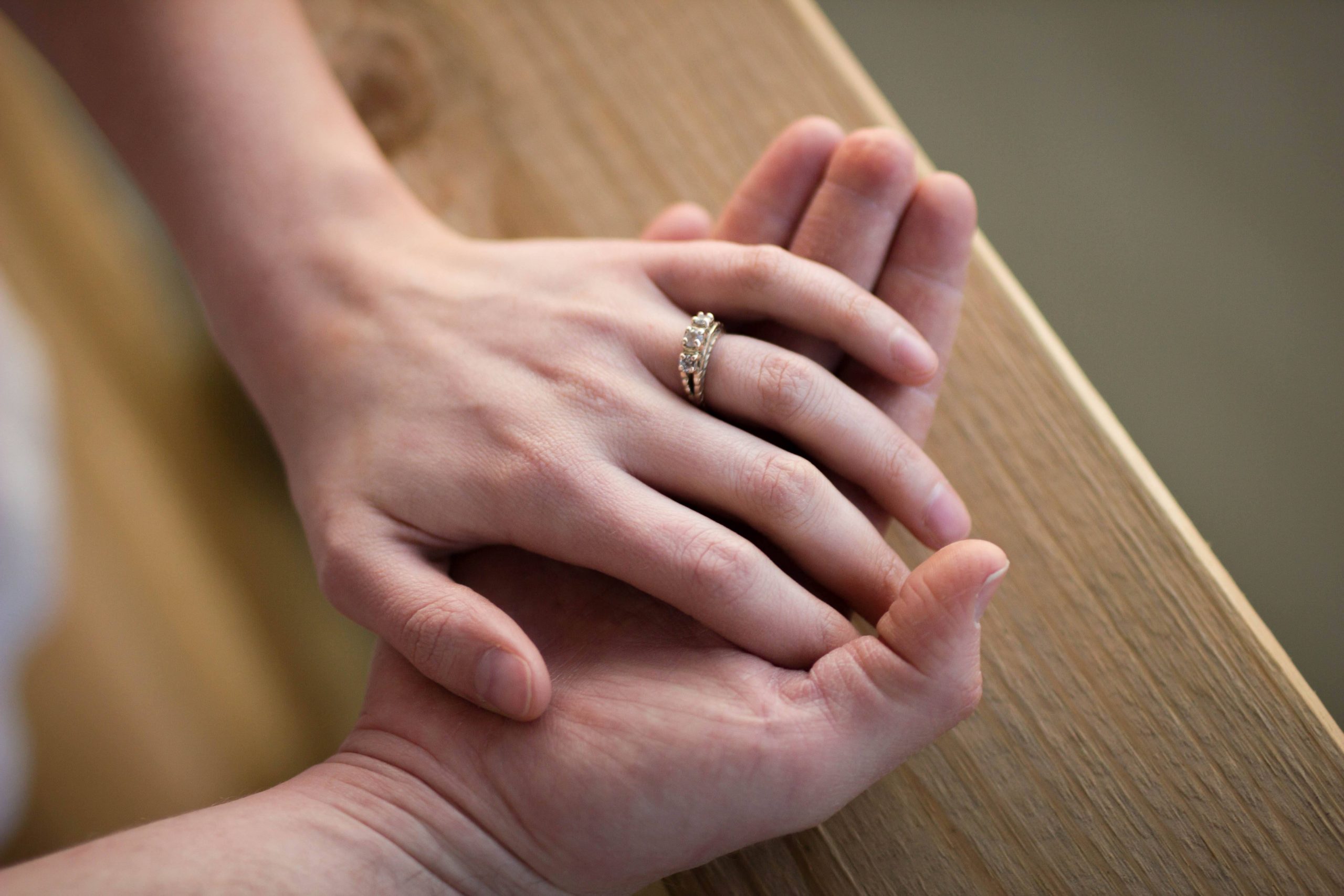Common law marriage can be confusing. Will you find yourself accidentally married if you live with your girlfriend? How long do you have to live together for a common law marriage?
This article will clear up a lot of misconceptions about common law marriage in South Carolina. We’ll explain how common law marriages are different than regular marriages. Common law marriages also present some challenging issues that a regular marriage doesn’t have.
UPDATE: On July 24, 2019, the South Carolina Supreme Court abolished common law marriage in South Carolina in Stone v. Thompson. This ruling is prospective only. This means that common law marriages based on conduct before July 24, 2019 may still be found to be marriages under South Carolina Law. The Supreme Court’s decision states that persons cannot establish common law marriages after July 24, 2019. Common law marriages already established are in tact.
The biggest line from the Supreme Court decision is this:
We likewise decline to exercise our prerogative to apply our ruling today retroactively. We see no benefit to undoing numerous marriages which heretofore were considered valid in our State, and we will not foreclose relief to individuals who relied on the doctrine. Accordingly, our ruling today is to be applied purely prospectively; no individual may enter into a common-law marriage in South Carolina after the date of this opinion.
We will write a new article about this new decision shortly.
1. What is a Common-Law Marriage?
A common law marriage is a marriage between two people without a formal wedding ceremony.
South Carolina recognizes common law marriages. This is unusual. Common law marriages are rare. Most states don’t even recognize them anymore! In fact, over the last century, 27 states stopped recognizing common law marriages within the state. Alabama stopped recognizing them this year!
There’s a history behind common law marriage that’s unique to the United States. Most states that recognized common law marriage were the pioneer states. As people moved west to Kansas, Colorado, and California, new states and territories recognized common law marriages.
Why is that? Because the new states and territories had low populations. Most people lived far away from each other. And, there were few churches on the prairie. This made it difficult to get a pastor to preside over the wedding. So, states allowed men and women to form common law marriages. Also, people couldn’t get marriage licenses as easily as we can today. Some states didn’t have marriage licenses. Some states didn’t have government offices in rural parts of the state.
Common law marriages made it easier for people to get married when there couldn’t be a formal wedding. Many states, including South Carolina, still recognize them to this day.
Follow us on Twitter and Facebook!
2. Common Law Marriage Requirements in South Carolina
There are 4 requirements for forming a common law marriage in South Carolina:
- There must be a mutual agreement;
- Both you and your spouse must have “legal capacity;”
- You must live together (cohabitation); and
- You must hold yourself out as married.
Mutually Agreeing to a Common Law Marriage
Believe it or not, marriage is a contract with your spouse. When you get married, you agree to support your spouse. Your spouse also agrees to support you. Think of the vows you took, or will take some day. You make this contract by your vows at a wedding in a normal wedding.
In a common law marriage, you and your spouse make the same agreement.
First, you and your spouse must agree that you are married to each other. You agree to support each other. You just don’t have the stress of picking wedding venues, wedding photos, and so on.
But unlike normal weddings, you don’t get a marriage license. Agreeing to a common law marriage is very lax. It isn’t formal.
Capacity
You need to have capacity to agree to a marriage. This means you must be capable of agreeing to the marriage
You and your spouse must be in the right state of mind to enter into a marriage. Like we said above, marriage is a contract. Likewise, you have to be legally competent to enter into a contract for marriage. This means that a person must be at least 18 years old in a common law marriage. They also have to be mentally competent.
If you want to celebrate your common law marriage, don’t celebrate too early. You may not be capable of agreeing to get married if you are drunk or intoxicated!
Cohabitation
You have to live together in the same house or apartment for a common law marriage. When the South Carolina courts have looked at whether a common law marriage is valid, it often looks to how the couple lives together. Put simply: Are you living together like a husband and wife? Do you share the same bedroom? Has your spouse moved some of their things to your house?
Things can get complicated if you live apart for part of the marriage, though.
In 2002, the South Carolina Court of Appeals had a case about a common law marriage. It focused on whether two spouses lived together.
John and Lori met in June 1998. At that time, Lori worked as a park ranger at Jones Gap State Park. She had to spend a lot of nights at the park because of her job. A few months after meeting John, Lori spent most of her time at John’s house. She also moved a lot of her things into John’s house.
In November 1998, John bought engagement and wedding rings for Lori. The couple went to Charleston in December 1998. During their Charleston trip, John gave Lori both rings. With both rings, Lori considered themselves married from that point on. But unfortunately, John died without a will one month later.
If someone is married and dies without a will, everything goes to their spouse if they don’t have any children. Lori went to court to prove she was in a common law marriage with John so she could inherit from him. John’s family wasn’t happy about this. They argued that Lori didn’t live with John because she spent a lot of nights at the park. The Court of Appeals disagreed with John’s family. They found that Lori was John’s wife.
Holding Yourselves Out as Married
You have to act like you’re truly married in a common law marriage. There are a lot of ways to do this. One spouse may change his or her last name to the other’s. You also can join finances by having a joint bank account. Courts even found that introducing your spouse as a husband or wife is enough!
Also, filing a joint tax return is enough for a common law marriage. By filing that tax return, you’re telling the government that you are married. If you try to renege on that, you can get into big trouble. Married couples get different tax benefits than single people. If you file a joint tax return when you don’t consider yourself married, you just may commit tax fraud!
3. Clearing Up Common Law Marriage
Common law marriage has a certain mystery to it. Maybe you heard about this weird legal loophole where you can get married if you live with someone for too long. Or may be you heard that common law marriages aren’t really marriages at all.
Here are the answers to some very common questions about common law marriage:
How long do I have to live with someone before we’re in a common law marriage?
This is the most common (no pun intended) question about common law marriage. There is no length of time that you have to live with someone before you’re married under common law! This doesn’t mean that you can find yourself accidentally married! You still have to mutually agree to be married.
What’s the difference between a common law marriage and a regular marriage?
The only difference is how the marriage is created. Once you’re in a common law marriage, it isn’t much different than a normal marriage.
Both types of marriage have the same rights and responsibilities. For example, common law marriage makes both spouses responsible for supporting each other. Spouses in a common law marriage can inherit from the other’s estate if a spouse dies without a will.
But regular marriages have something that common law marriages lack–a marriage license, or some kind of paper saying that you’re married. Marriage licenses prove a marriage exists. If you are in a common law marriage, you probably don’t have any document that clearly shows your marriage exists.
How can I prove that I’m in a common law marriage?
It’s a good idea to make sure that your marriage is “on the record.” Having a legal paper proving your marriage will make everything a lot easier. You can do this in two different ways.
First, you can go to the county records office and make a record of the marriage. To do this, you will need to make affidavits. One of the affidavits should be from a witness to the marriage. This is often just by one of the spouses. Because common law marriages don’t have ceremonies, the spouses are usually the only witnesses to the marriage. You also need two more affidavits from friends or family members saying that they have seen you and your spouse living as husband and wife.
Second, you can establish a common law marriage through a court proceeding. This usually happens when there is a question as to whether the common law marriage existed. This often happens in probate court when a common law spouse dies without a will, and the other spouse wants their spousal share of the inheritance. The court will hear evidence about the marriage and check to see if all of the four common law factors are met.
How can I end a common law marriage?
Because common law marriages are the same as normal marriages, you can only get out of one by dying or filing for divorce. You can decide on a whim to be married under common law. It’s not so easy when it comes to divorce. Even if you and your spouse mutually agree you’re no longer married, you still need a divorce decree to legally end the marriage.
And just like a regular marriage, you can get alimony, property division and child support with a common law marriage. Keep in mind, though, that a divorce court may look at a lot of different factors in each divorce case.
A divorce for a common law marriage is just like a divorce for a regular marriage. You can sue for a fault-based divorce, or a no-fault divorce. If you sue for a no-fault divorce, you must live separately for one year.
Sometimes, you may have to go to the probate court before you get divorced. The probate court is responsible for finding that a common law marriage exists. This usually comes up when one spouse argues that a common law marriage never existed.
Will other states recognize my common law marriage?
Yes! They have to! The Constitution has a special clause, called the Full Faith and Credit Clause. This means that one state has to respect the laws of another state.
For example, Alabama’s legislature decided in 2016 that Alabamans can no longer enter into common law marriages in Alabama after January 1, 2017. Under the Full Faith and Credit Clause, if a common-law married couple from South Carolina moved to Alabama in June 2017, The state of Alabama must recognize that common law marriage from South Carolina as a valid marriage.
But, there is a caveat. Your common law marriage in South Carolina must be a valid common law marriage before any other states will recognize it. For example, if you meet all requirements except for cohabitation, then there is no marriage, and no other state has to recognize it.
You also have to enter into that common law marriage under South Carolina law in South Carolina. You can’t get married by common law under South Carolina law during a romantic weekend in Savannah, Georgia!









